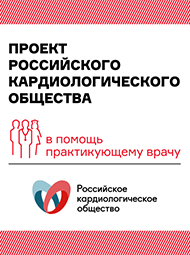Digoxin linked to elevated risk for death, hospitalization in patients with AF
Data from the ATRIA-CVRN study suggest an association between digoxin and increased risk for death and hospitalization in patients with atrial fibrillation.
Digoxin is commonly used for rate control in AF, but some studies have demonstrated an association with adverse outcomes. There are little data to support the use of digoxin in this patient population, according to the study background.
Alan S. Go, MD, and colleagues conducted a retrospective cohort study of 14,787 age-, sex- and high-dimensional propensity score-matched adults from the Kaiser Permanente Northern California and Southern California health systems. All had incident AF and no prior HF or digoxin use. The researchers examined the independent association between newly initiated digoxin and risk for death and hospitalization.
“Digoxin remains commonly used for rate control in [AF], but very limited data exist to support this practice — mostly small, older clinical studies with very limited follow-up that did not assess the long-term effects of digoxin on mortality or hospitalization,” Go, from the division of research at Kaiser Permanente Northern California, the departments of medicine, epidemiology and biostatistics at the University of California, San Francisco, and the department of health research and policy at Stanford University, said in a press release.
During a median of 1.17 years of follow-up, incident digoxin use was associated with a higher rate of death (8.3 per 100 person-years vs. 4.9 per 100 person-years; P<.001) and hospitalization (60.1 per 100 person-years vs. 37.2 per 100 person-years; P<.001). The researchers determined that incident digoxin use was independently associated with a higher risk for death (HR=1.71; 95% CI, 1.52-1.93) and hospitalization (HR=1.63; 95% CI, 1.56-1.71). These findings were consistent regardless of age, sex or intention-to-treat vs. on-treatment analysis.
“We believe these findings, which build upon earlier work, have significant value in guiding clinical cardiology decision-making in regard to digoxin use in the modern era,” Go said.
“Given the other options available for heart-rate control, digoxin should be used with caution in the management of [AF], especially in the absence of symptomatic systolic [HF],” Anthony Steimle, MD, chief of cardiology at Kaiser Permanente Santa Clara Medical Center in California, stated in the release.
Disclosure: The study was supported by grants from the NHLBI and the American Heart Association. The researchers report no relevant financial disclosures.
Source: www.healio.com






